Sailing: 10 Essential Yacht Rock Albums to Own as Vinyl Records

The sun is out, the wind is in your hair, and the smell of salty sea air permeates. It's the time of year that's practically begging you to drop the needle on some good old yacht rock. What is yacht rock, anyway? It's a bit difficult to define, but if the vibes are gentle, the guitars are mellow, and the vocals are buttery smooth, odds are you're listening to yacht rock. Yacht rock is experiencing something of a renaissance in popularity without much of a need or effort to reproduce it. There's something about Kenny Loggins with the windows down that just hits in a way that can't be replicated. As we get summer rolling, here's a list of essential yacht rock albums.
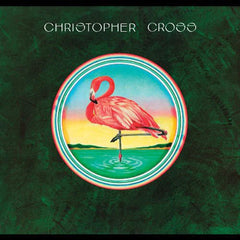
Christopher Cross (1979) — Christopher Cross
Christopher Cross really helped to define the genre with his self-titled debut, right down to the pink flamingo on the cover. The album contains two of Cross' biggest hits, "Sailing" and "Ride Like the Wind," both staples of late '70s soft rock. "Sailing" in particular took on a life of its own, with its mellow, acoustic guitars and string sections coming to define Cross' career.
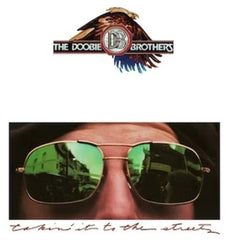
Takin' It to the Streets (1976) —The Doobie Brothers
The Doobie Brothers emerged in the early 1970s as a relatively traditional rock band. Distorted guitars and high-octane solos were typical of the Doobies' sound, but that changed with the addition of vocalist Michael McDonald in 1976. With McDonald, the group released Takin' It to the Streets, a more laid back, jazzier record that even incorporated a horn section. It was a tremendous success, leading to a permanent shift in musical approach for the band. McDonald left the band in 1982, but recently rejoined, reuniting the golden-era Doobie Brothers lineup.
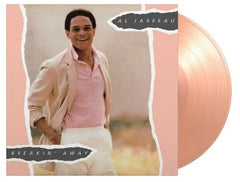
Breakin' Away (1981) — Al Jarreau
Beginning his career as a jazz musician, Jarreau gradually migrated closer to pop music as the '70s drew to a close. 1981's Breakin' Away is atply titled, as it represents his first major effort at a jazz-pop crossover, released to widespread acclaim. Jarreau added a jazz and soul influence to the yacht rock genre that took it in a new direction and opened doors for other artists to get in the game. Jarreau went on to release several more crossover albums, racking up Grammy nods along the way.
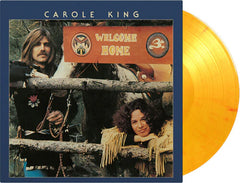
Welcome Home (1978) — Carole King
When all is said and done, Carole King will go down as one of the greatest songwriters of the 20th century. King has penned hit after hit after hit, both for other artists as well as her own impressive catalog. Welcome Home offers up King's typical level of brilliance, with hits like "Morning Sun." King may not fit squarely into the yacht rock subgenre, but the vibes are certainly there, and there's never not a valid excuse to listen to more Carole King.
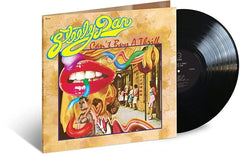
Can't Buy a Thrill (1972) — Steely Dan
Quick, think of the quintessential "dad band." It's Steely Dan, isn't it? Steely Dan later began experimenting with other genres like jazz fusion and electronic music, but always had one foot firmly planted in yacht rock. Can't Buy a Thrill is about as good of a debut album as can be, featuring iconic tracks like "Dirty Work," "Do It Again," and of course "Reelin' in the Years," iconic opening guitar solo and all.
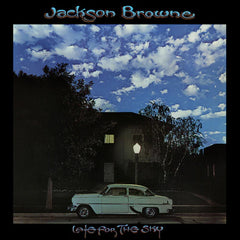
Late for the Sky (1974) — Jackson Browne
Re-issued on vinyl, Jackson Browne's landmark album, Late for the Sky is the record that thrust him into superstardom. Browne had already worked with the Eagles and other major artists as a songwriter, but Late for the Sky established him as a major player in soft rock, with the title track being used in the film Taxi Driver. This was the album that opened the door for Browne, as he released a string of hits throughout the late '70s and '80s.
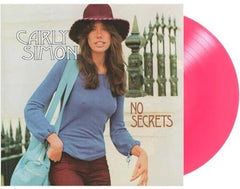
No Secrets (1972) — Carly Simon
No Secrets was Carly Simon's third outing, but her first major commercial success. The album features her signature song, "You're So Vain," leading to a web of conspiracy theories as to who the song could possibly be about in the pre-internet age. 50 years after its release, we're left with only a third of the answer. Simon also collaborated with major artists like James Taylor, Paul and Linda McCartney, and Mick Jagger to produce this icon of the '70s.
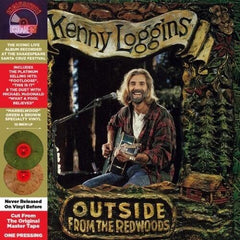
Outside From the Redwoods (1993) — Kenny Loggins
All hail Kenny Loggins, the Supreme Lord of Yacht Rock. There is arguably no artist so closely identified with the genre, from his days in the Nitty Gritty Dirt Band to his solo work to the pinnacle of yacht rock with Loggins & Messina. Outside From the Redwoods is a live album that serves as something of a retrospective of his career, touching on each phase; yes, even "Footloose." A large part of the yacht rock subgenre is collaboration with other yachties, as Loggins duets with Michael McDonald on "What a Fool Believes."
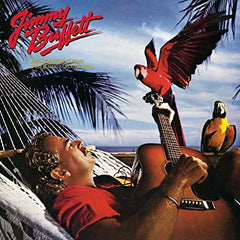
Songs You Know by Heart (1985) — Jimmy Buffett
Nobody can transport you to a Caribbean island quite like Jimmy Buffett. Released in the '80s, Songs You Know by Heart is a compilation record of some of Buffett's biggest hits, including career-defining tracks like "Cheeseburger in Paradise" and "Margaritaville." Buffett's troves of loyal fans, known as Parrotheads, can chill with the best of them, reclining in their beach chairs, sipping on fruity drinks and spinning vinyl.
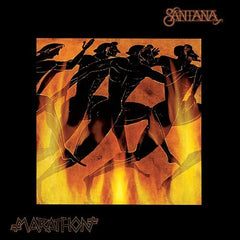
Marathon (1979) — Santana
While Santana may be more closely identified with Carlos Santana's ripping blues guitar licks, 1979's Marathon veers into yacht rock. Vocalist Alex Ligertwood's smooth, R&B style vocals provide a new direction for Santana, as tracks like "You Know That I Love You" and "All I Ever Wanted" provided huge commercial success. Of course, the album is far from short on guitar mastery, with "Lightning in the Sky" featuring a signature Santana solo.



















